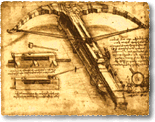Ownership
Matthew Hutson, English 111, Brown University (1998)


Looking through the perspective of visual art raises many questions about ownership in the digital world -- ownership of authority, ownership of information, and ownership of method. Perhaps more importantly, the very separations between these properties begin to fade. When manipulating an image with Photoshop, how much of the creative process has been precluded by the tools that Kai Krause and others have programmed into the software? Thus content and method merge. Photographs, once a reliable sign of objective authenticity, defy the third-person nature of its perspective by bending to the will of a Photoshop user, merging authority with both method and content. Credit disperses among the photographer, the programmer, the graphic designer, and nature herself for providing the original scene.
Beyond esoteric concerns of creative input, the issue of reimbursement for borrowed intellectual property weighs heavily on the artist. When asked in an interview with Kyle Shannon about concern over copyright violations, digital artist Antonio Mendoza gave this reply:
I feel that this whole copyright issue is not about integrity, but about greed. It's all about people wanting more money for what they did. Of course if I take your work and claim it as my own, I'm violating your rights. That's different than if I scan your work and use it to create something new. The loudest complaints about digital violations of copyrights tend to come from photographers who see people doing things with their work for which they are not getting anything. You can't protect against the recycling of images. Digital technology cannot be held back by outdated copyright statutes. People say that if you want to use a picture of a tree, go ahead and take the damn picture [yourself]. Fuck that! It's like saying if you want to paint with a certain type of brush, go ahead and make the brush.
Some suggest that we leave artists alone to use whatever materials they like, and then judge their work on its originality. If an artist blatantly uses the work of someone else, this will become obvious and the artist will receive little respect for the piece. If the appropriation is not so obvious, then the original artist should point this out to the viewers rather than suing the appropriating artist for money. With accurate knowledge of a piece's sources, the viewer can then decide whether the appropriating artist's modifications are worth praise. Shannon asked Mendoza, "At what point of digital manipulation does a procured image (or sound or video) become the property of the manipulator?", and Mendoza replied:
My ability to make the image my own relies on my ability as an artist. Most amateurish manipulations cannot transcend the power of the original image. If I cannot transform an image into something new, I should not be faulted for my attempted appropriation. I should be faulted for being a lousy artist.
